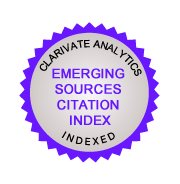Most read articles by the same author(s)
- Masudul Alam Choudhury, Saeed Al-Muharrami, Mohammad Saleh Ahmed, A Circular Causation Model of the Oil and Gas Sector Relative to the Nonoil Sector in the Sultanate of Oman , International Journal of Management Studies: Vol. 21 No. 2 (2014): International Journal of Management Studies (IJMS) Vol. 21, No. 2 December 2014
- Masudul Alam Choudhury, The Family as a Socioeconomic Management System , International Journal of Management Studies: Vol. 18 No. 1 (2011): International Journal of Management Studies (IJMS) Vol. 18, No.1 June 2011
- Masudul Alam Choudhury, Noreha Halid, Mohammed Saleh Ahmed, Mohammad Shahadat Hossain, Fiscalism as Spending and Monetary Integration , International Journal of Management Studies: Vol. 20 No. 1 (2013): International Journal of Management Studies (IJMS) Vol. 20, No. 1 June 2013
- Masudul Alam Choudhury, Islamic Dinar and 100 Percent Reserve Requirements Monetary System , International Journal of Management Studies: Vol. 15 No. 2 (2008): International Journal of Management Studies (IJMS) Vol. 15, No. 2 December 2008













